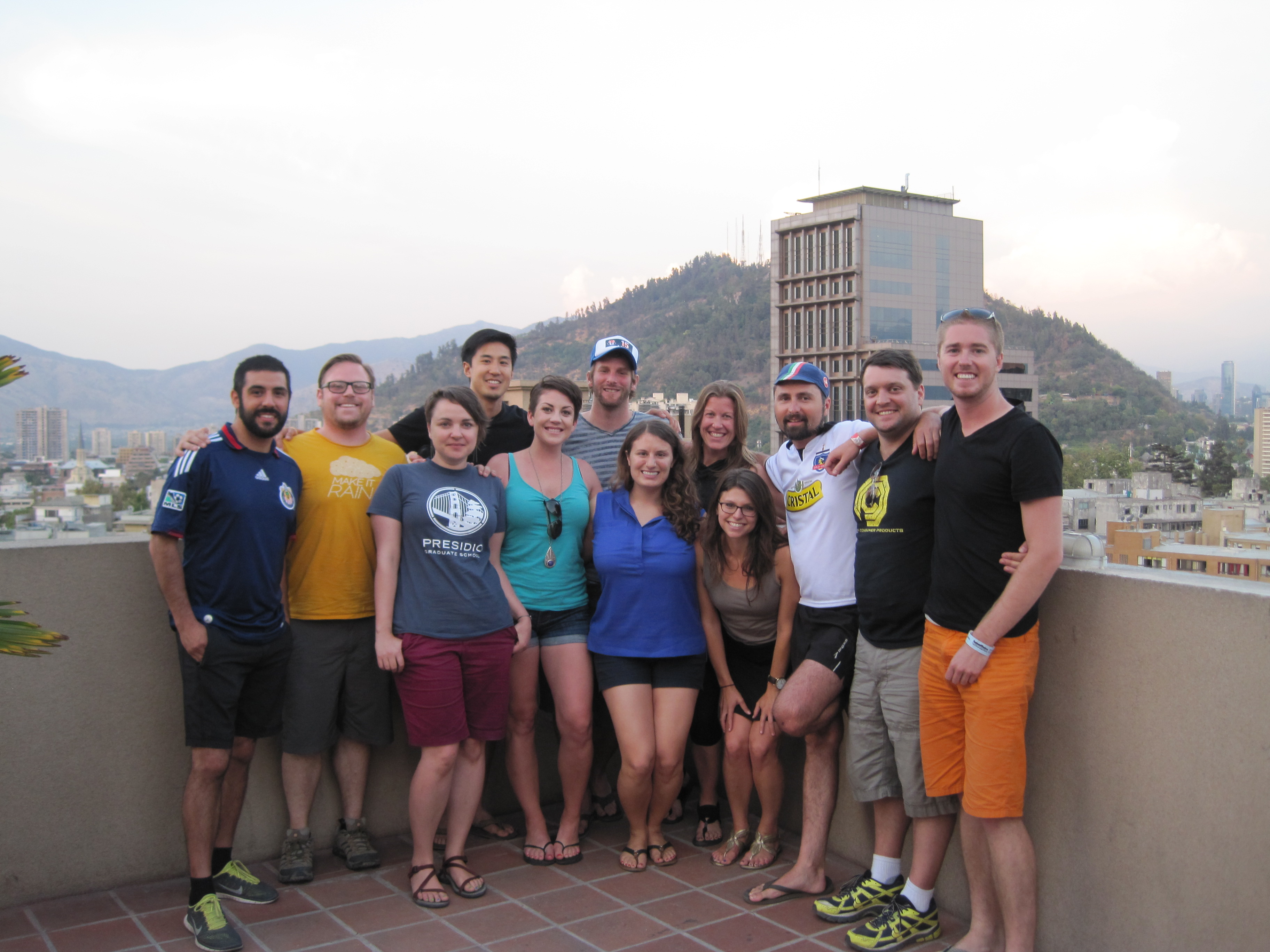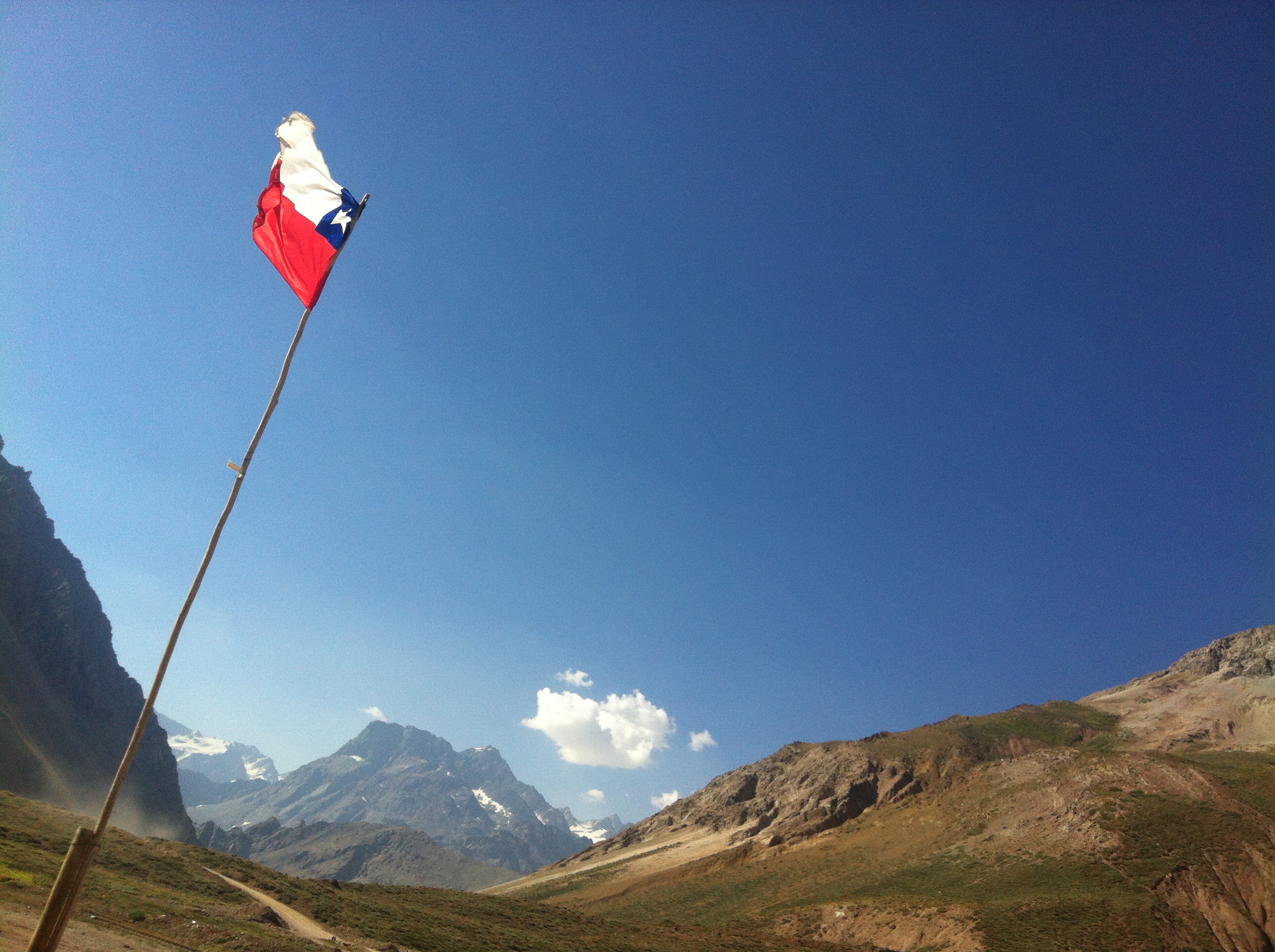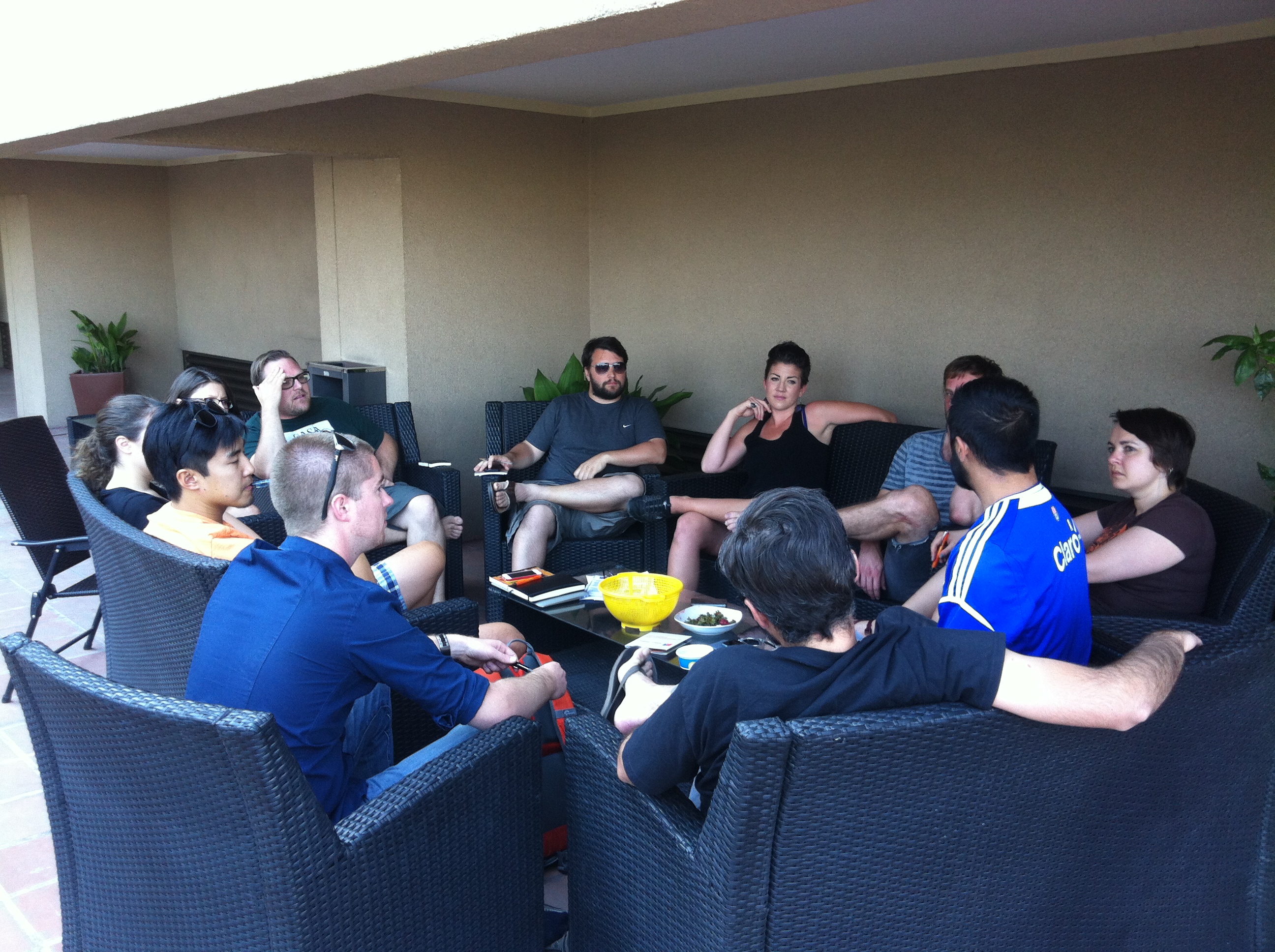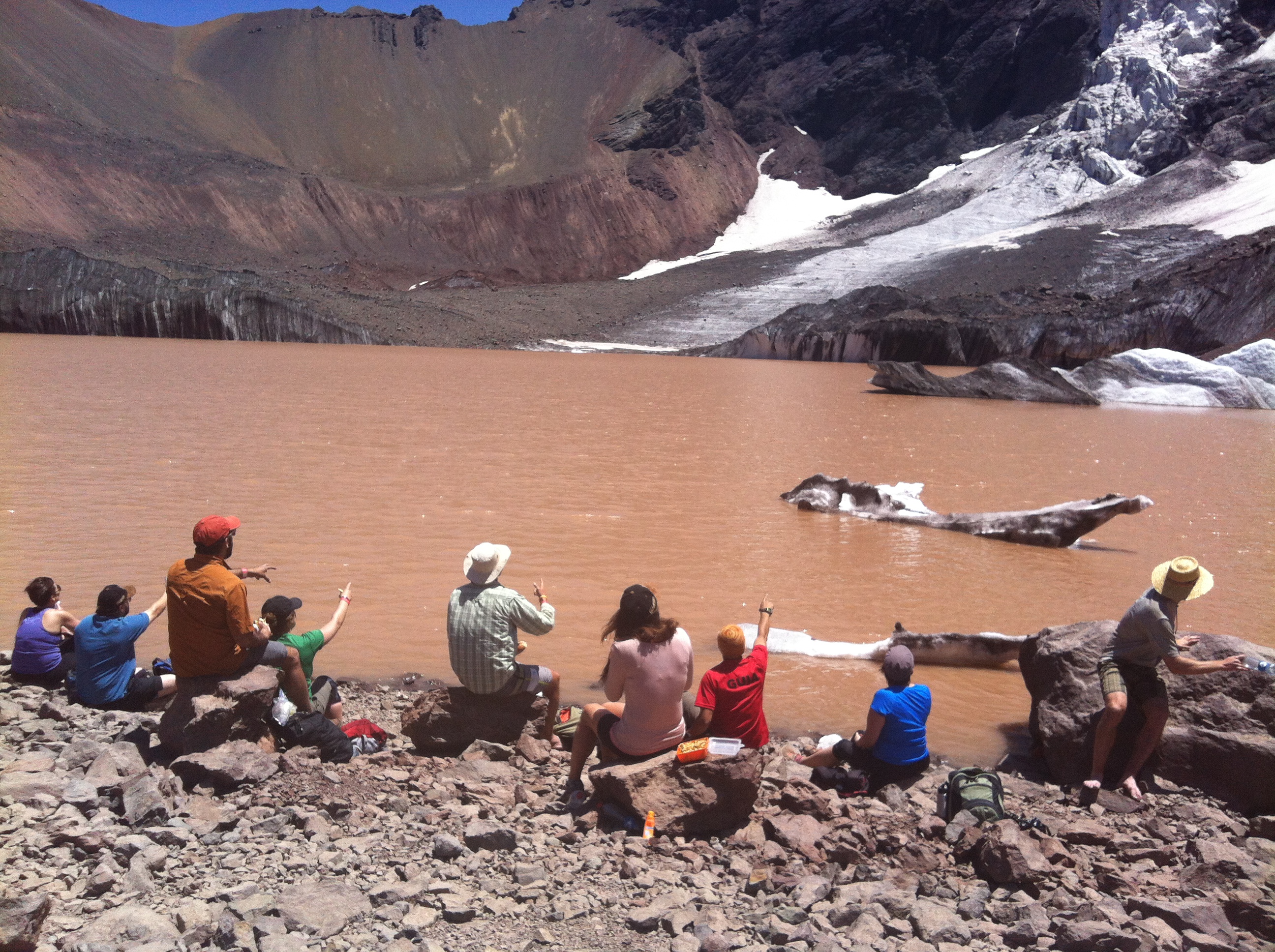
This past winter 12 Presidians from the International Sustainability Club (ISC) went on an adventure to Santiago, Chile to learn about—and assist in cultivating—the potential for renewable energy and energy independence there.
We were inspired to go to Chile by PGS Alumnus Edgardo LeBlond’s (C15) Alpine of the America’s project and the film Streams of Consciousness, two projects exploring Chile’s melting glaciers and the pristine but environmentally threatened land in Patagonia.
In addition to this inspiration, Chile also happens to be a perfect case study on renewable energy development in emerging economies. While Chile’s economy is booming with the highest per capita GDP in South America, it has also mandated that 20% of its energy must come from renewables by 2025. With increasing energy demand, gorgeous yet melting glaciers, and approved large-scale dams—such as the enormous HidroAysen project—in the pipeline, Chile’s rapid economic growth is outpacing its long-term sustainability challenges and goals.
 Our Process
Our Process
Once we decided to focus on Chile’s integration of renewables, the discussion turned to how we, as students, could make a contribution to Chile’s vision. We utilized IDEO’s Human Centered Design (HCD) toolkit to help understand the context, having seen how ISC’s trip to Bali in 2013 had successfully employed HCD methodology to assist recycling businesses in Indonesia last year.
Our initial HCD work uncovered that stakeholder groups affected by Chile’s energy challenges were often siloed, leading to potentially non-optimal policy and action. So we settled on a stakeholder engagement project as a way to make our contribution. We formed subcommittees to research the five key stakeholder groups—Advocates, Affected Local Communities, Energy Producers, Energy Users, and Government—to gain context and understanding, as well as meet with them while on the ground in Chile.
Our group formulated a problem statement to guide our collective research efforts, but the statement rapidly evolved over the course of our trip, as new thinking and new evidence emerged. We captured our problem statement best during our weekend ideation retreat at the beautiful Cascada de las Armas in Cajon del Maipo, Chile. There, we took a ride into the Andes Mountains on horseback, hiked five hours to a glacier, and got to see first hand the destruction the mining industry was causing on Chile’s land. It must have clarified our thinking because during a lengthy ideation session and stacks of post-it notes later, we refined our problem statement to its final form:
What might energy security look like for Chile that minimizes social and environmental risks?
This problem statement enabled us to stay focused and share our discoveries at our daily morning meetings on the roof of our Aparthotel. Each morning, we reviewed prior meetings, went through the interview schedule for the day, laid out our proposed common questions, and tailored them to each subcommittee and stakeholder.
Out of the 12 of us on the trip, only one spoke Spanish fluently and three or four of us were able to speak conversationally. Many of the stakeholders we interviewed spoke English, which helped ensure we were capturing their responses and ideas accurately; when their English was limited, we made sure to have our more fluent speakers present, or a local university student who graciously offered to translate for us.
 The Interviews
The Interviews
Our meetings and engagement over our two and a half weeks in Chile were a total success. From the first day we landed in Santiago, we were pleasantly surprised that so many groups and organizations were more than willing to speak with us and share their honest opinions about the energy challenges in the country.
We met with over 20 stakeholders, including the inspiring Juan Pablo Orrego, Environmentalist and Goldman Prize winner; Ignacio Fernandez, Division of Sustainable, Ministry of Energy; Nicola Borregard, Director of Energy and Climate Change at Fundación Chile, as well as local residents, academics, business leaders and many more. We are able to record and catalog the often conflicting perspectives of stakeholders in Chile’s renewable future, from individuals entrenched in Chile’s government, to professors teaching about energy efficiency at the local university, to indigenous local communities in Southern Chile whose land is being destroyed by hydro projects.
A small group of us also ventured out of Santiago to Osorno to speak with local residents and gain insight into how the smaller communities and indigenous populations were impacted.
Overall, what we learned was both profound and inspiring, and also somewhat daunting. While all citizens of Chile are affected by energy challenges in some way, we could clearly see that energy choices in the country were made from the top down and most stakeholders were not included in the conversation.
(We also found that throughout the trip our collective Spanish speaking skills greatly improved.)
 What’s Next?
What’s Next?
We plan to develop a case study incorporating all of our insights from interviews and research to share with designated stakeholders in Chile. We hope this case study will help make visible the vast perspectives that are not currently connected in the country, and help support a systems thinking approach to Chile’s energy challenges.
The knowledge we gained as business and policy students applying the PGS curriculum first hand in another country was irreplaceable. Furthermore, the fact that ISC trips are completely student initiated, designed and implemented enhances the experience for the group and empowers all of us to participate. Creating an international project from start to finish and taking a deep dive into another country’s energy challenges is an experience no classroom can teach.
Our team was humbled by the willingness of the Chilean community to open their doors and share their perspectives, and by the lively culture and spirit of the country and its people. We hope to help inspire other Presidians and students beyond PGS to take on international student projects and embrace the first hand learning opportunities experiencing pressing and influential sustainability challenges around the globe.
For more information about our team’s project in Chile, our experiences, and recommendations for future international trips, check out the dynamic blog series we developed over the course of the spring semester. Additionally, feel free to reach out to me and I can connect you to past and present club leaders like myself. Last, be sure to check out the next ISC student trip to Kenya in January 2015!
This article was originally published in Presidian Spring 2014: Theory to Action. Read more from the interactive online magazine here!
